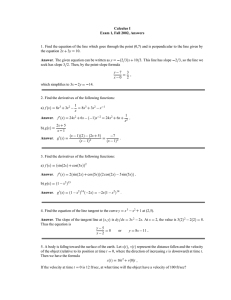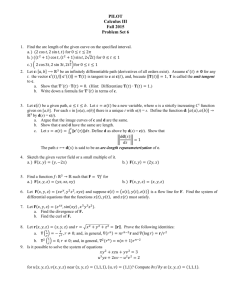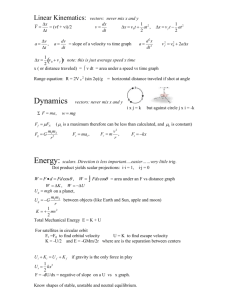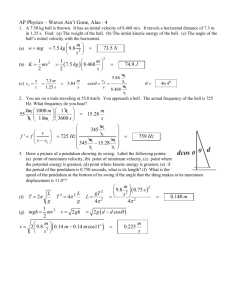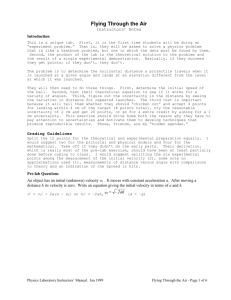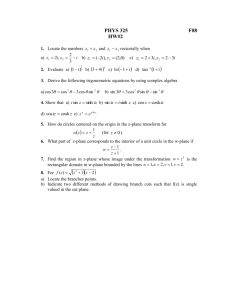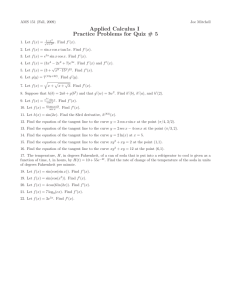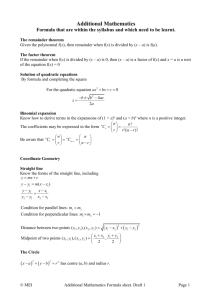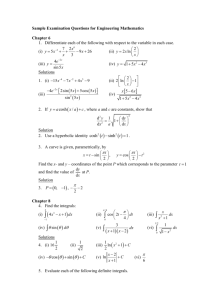Good sites for brachistochrone problem:
advertisement
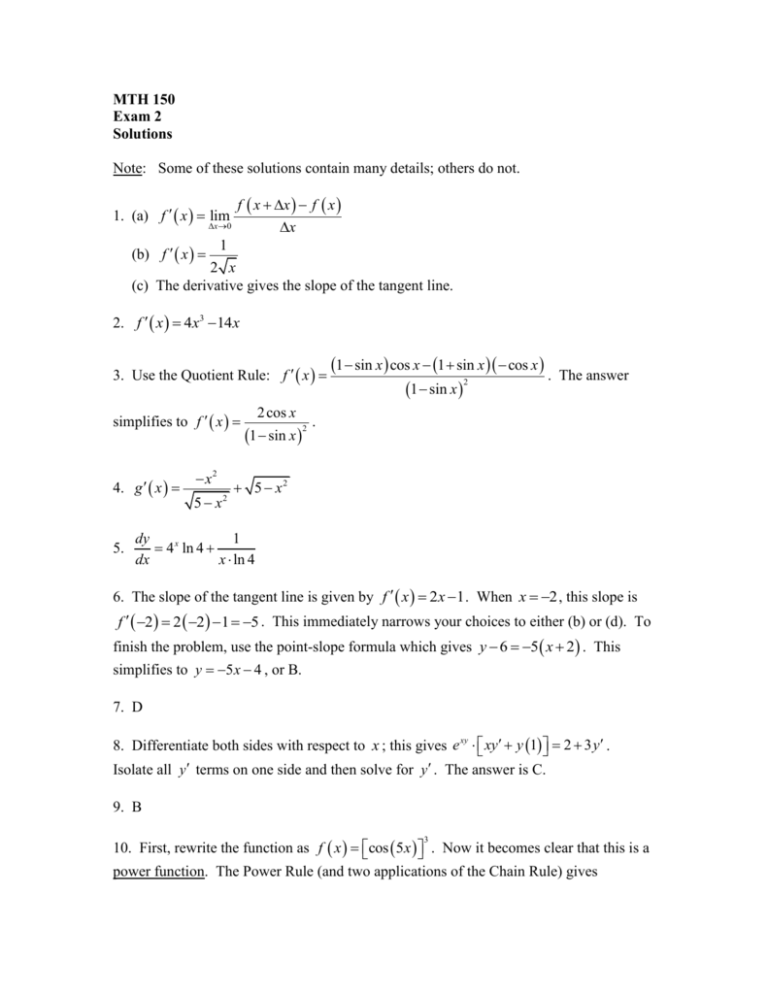
MTH 150 Exam 2 Solutions Note: Some of these solutions contain many details; others do not. 1. (a) f x lim x 0 (b) f x f x x f x x 1 2 x (c) The derivative gives the slope of the tangent line. 2. f x 4x3 14x 3. Use the Quotient Rule: f x simplifies to f x 4. g x 5. x2 5 x 2 2 cos x 1 sin x 2 1 sin x cos x 1 sin x cos x . 2 1 sin x The answer . 5 x2 dy 1 4 x ln 4 dx x ln 4 6. The slope of the tangent line is given by f x 2 x 1 . When x 2 , this slope is f 2 2 2 1 5 . This immediately narrows your choices to either (b) or (d). To finish the problem, use the point-slope formula which gives y 6 5 x 2 . This simplifies to y 5 x 4 , or B. 7. D 8. Differentiate both sides with respect to x ; this gives e xy xy y 1 2 3 y . Isolate all y terms on one side and then solve for y . The answer is C. 9. B 10. First, rewrite the function as f x cos 5x . Now it becomes clear that this is a 3 power function. The Power Rule (and two applications of the Chain Rule) gives f x 3 cos 5 x sin 5 x 5 2 15cos 2 5 x sin 5 x . Choose E. 11. A 12. Since the coin is dropped (not thrown), the initial velocity is 0. In other words, v0 0 . Also, the building is 1300 ft above the ground so the initial height is given. So s0 1300 . Using this information, the position function is s t 16t 2 1300 and the velocity function is v t s t 32t . The average velocity corresponds to the slope of the secant line so this can be found by computing distance traveled s 2 s 1 48 ft/sec . time elapsed 2 1 The instantaneous velocity for part (c) can be found by computing v 2 . 13. 1, 0.6, 0.4649, 0.4535 14. This is done for you in the textbook. See the worked-out examples in Section 3.7 (Related Rates).

